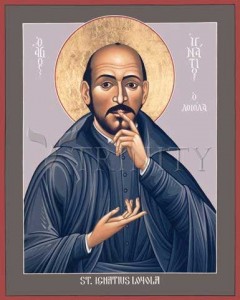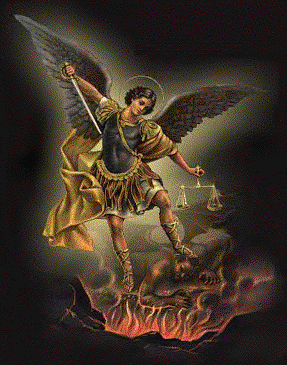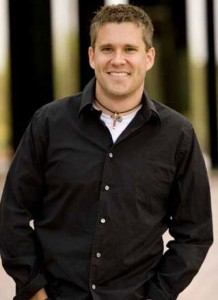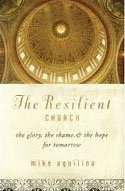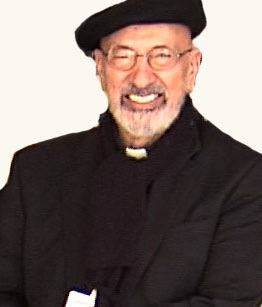 BKL 76 ” Building a Kingdom of Love” – The Need for Spiritual Direction
BKL 76 ” Building a Kingdom of Love” – The Need for Spiritual Direction
[powerpress]  Msgr. Esseff reflects on why we need spiritual direction on the spiritual journey.
Gospel MT 21:28-32
“What is your opinion?
A man had two sons.
He came to the first and said,
‘Son, go out and work in the vineyard today.’
He said in reply, ‘I will not,’
but afterwards changed his mind and went.
The man came to the other son and gave the same order.
He said in reply, ‘Yes, sir, ‘but did not go.
Which of the two did his father’s will?”
They answered, “The first.”
Jesus said to them, “Amen, I say to you,
tax collectors and prostitutes
are entering the kingdom of God before you.
When John came to you in the way of righteousness,
you did not believe him;
but tax collectors and prostitutes did.
Yet even when you saw that,
you did not later change your minds and believe him.”
Msgr. John A. Esseff is a Roman Catholic priest in the Diocese of Scranton. He was ordained on May 30th 1953, by the late Bishop William J. Hafey, D.D. at St. Peter’s Cathedral in Scranton, PA. Msgr. Esseff served a retreat director and confessor to Blessed Mother Teresa. He continues to offer direction and retreats for the sisters of the missionaries of charity around the world. Msgr. Esseff encountered St. Padre Pio, who would become a spiritual father to him. He has lived in areas around the world, serving in the Pontifical missions, a Catholic organization established by Bl. Pope John Paul II to bring the Good News to the world especially to the poor. Msgr. Esseff assisted the founders of the Institute for Priestly Formation and continues to serve as a spiritual director for the Institute. He continues to serve as a retreat leader and director to bishops, priests and sisters and seminarians and other religious leaders around the world.   To obtain a copy of Msgr. Esseff’s book by visiting here  Be sure to visit Msgr. Esseff’s website “Building a Kingdom of Love“
 To obtain a copy of Msgr. Esseff’s book by visiting here  Be sure to visit Msgr. Esseff’s website “Building a Kingdom of Love“
Tags: catholic, catholic podcast, catholic prayer, cathollc spirituality
This entry was posted on Tuesday, September 30th, 2014 at 12:55 pm
You can follow any responses to this entry through the RSS 2.0 feed.
Learn more about St. Jerome in our fascinating discussion with Mike Aquilina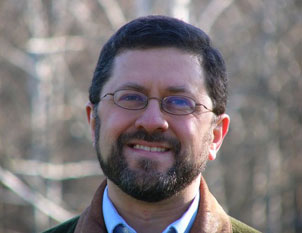
[powerpress]
Spiritual Writings:
 - Letters
-Â The Perpetual Virginity of Blessed Mary
-Â To Pammachius Against John of Jerusalem
-Â The Dialogue Against the Luciferians
-Â The Life of Malchus, the Captive Monk
-Â The Life of S. Hilarion
-Â The Life of Paulus the First Hermit
-Â Against Jovinianus
-Â Against Vigilantius
-Â Against the Pelagians
-Â Prefaces
-Â De Viris Illustribus (Illustrious Men)
-Â Apology for himself against the Books of Rufinus
Prayer to St. Jerome
 For Insight
Through your anger and confrontations you remind us that we all have a duty to confront others from time to time. You also remind us that we have a duty to examine ourselves and confront our own weaknesses and harmful behaviours. Your life teaches that I must accept others for who they are. You taught of the danger of self-righteousness; of the importance of reflecting upon one of Jesus’ most insightful teachings: “Let the man who has no sin on his conscience throw the first stone.” In the light of your teachings, Saint Jerome, help me to see my own self clearly. Help me to confront my own biases and to act to change others only out of love. If I see that I have the duty to confront another, I ask you to be with me during those necessary but unpleasant moments of confrontation. Help me to remember that love alone can make changes for the good.
Amen.
The Thunderer
God’s angry man, His crotchety scholar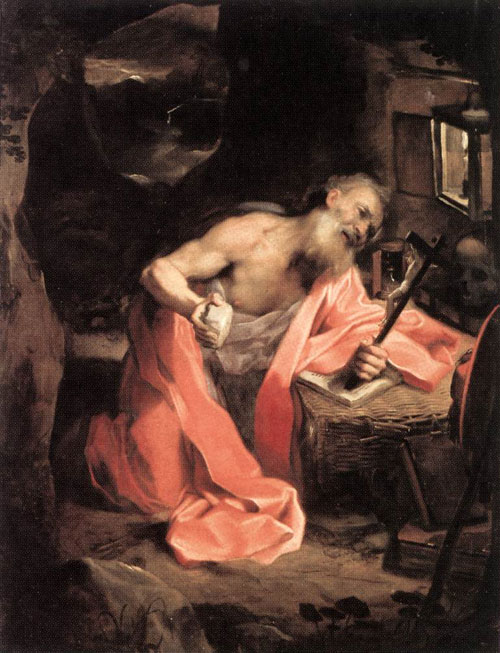
Was Saint Jerome,Â
The great name-caller
Who cared not a dime
For the laws of Libel
And in his spare time
Translated the Bible.
Quick to disparage
All joys but learning
Jerome thought marriage
Better than burning;
But didn’t like woman’s
Painted cheeks;
Didn’t like Romans,
Didn’t like Greeks,
Hated Pagans
For their Pagan ways,
Yet doted on Cicero all of his days.
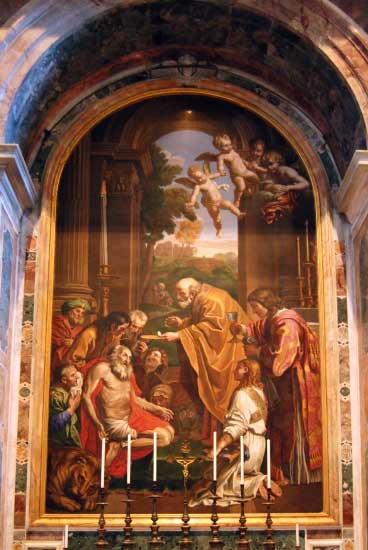
A born reformer, cross and gifted,
He scolded mankind
Sterner than Swift did;
Worked to save
The world from the heathen;
Fled to a cave
For peace to breathe in,
Promptly wherewith
For miles around
He filled the air with
Fury and sound.
In a mighty prose
For Almighty ends,
He thrust at his foes,
Quarreled with his friends,
And served his Master,
Though with complaint.
He wasn’t a plaster sort of a saint.
But he swelled men’s minds
With a Christian leaven.
It takes all kinds
To make a heaven
by Phyllis McGinley, from “Times Three: Selected Verse from Three Decades with Seventy New Poems”, (Pulitzer Prize Winner).
Tags: catholic, catholic podcast, catholic prayer, cathollc spirituality, father, fathers mike, love, mike aquilina, phyllis mcginley, saint jerome, St Jerome
This entry was posted on Tuesday, September 30th, 2014 at 12:13 pm
You can follow any responses to this entry through the RSS 2.0 feed.
[powerpress]
Day 8
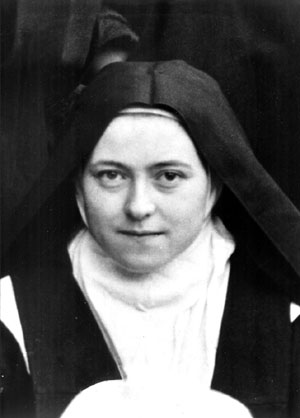
St. Therese you have said:
“And it is the Lord, it is Jesus, who is my judge. Therefore i will try always to think leniently of others, that He may judge me leniently, or rather not at all, since He says: “Judge not, and ye shall not be judged.â€
Saint Therese, flower of Carmel,
you said you would spend your heaven
doing good upon the earth.
Your trust in God was complete.
Listen to my prayer;
bring before God my special intention…
Pray for me that I may have something of your confidence
in the loving promises of our God.
Pray that I may live my life in union with God’s plan for me,
and one day see the Face of God who you so ardently loved.
Saint Therese,
you kept your word to love God
and to trust the world to that loving providence.
Pray for us that we may be faithful to our commitment to love.
May our lives, like yours,
be able to touch the world and bring it to peace.
Amen
Tags: catholic, catholic podcast, catholic prayer, cathollc spirituality
This entry was posted on Tuesday, September 30th, 2014 at 9:39 am
You can follow any responses to this entry through the RSS 2.0 feed.
Episode 7- St. John Paul II – Fides et Ratio : Faith and Reason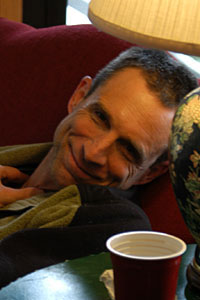
[powerpress]
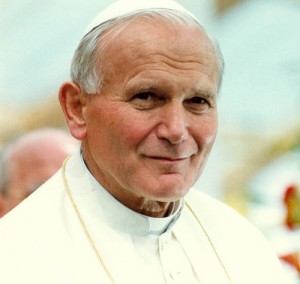 In this episode Dr. Reno examines Faith and Reason through St. John Paul II’s “Fides et Ratio”.
In this episode Dr. Reno examines Faith and Reason through St. John Paul II’s “Fides et Ratio”.
|
For an online version of “Fides et Ratio’ click here
“Christian Apologetics with Dr. R. R. Reno” explores numerous facets of faith and reason in the life of the Church and the world. Grounded on the work of giants, such as St. Thomas Aquinas, St. Bonaventure, Blessed John Newman, soon-to-be Blessed John Paul II, G. K. Chesterton, Blaise Pascal and Stephen Barr, Dr. Reno helps us to open our minds to make the journey to our hearts.
R. R. Reno is the editor at First Things: A Journal of Religion, Culture, and Public Life, and Professor of Theology, currently on leave from Creighton University. His theological work has been published in many academic journals. Essays and opinion pieces on religion, public life, contemporary culture, and current events have appeared in Commentary, and the Washington Post. In Fighting the Noonday Devil Reno suggests that putting ourselves at the disposal of what is real is what trains us for true piety. His other recent books include Genesis: Brazos Theological Commentary on the Bible and Sanctified Vision: An Introduction to Early Christian Interpretation of the Bible.
Tags: catholic, catholic podcast, catholic prayer, cathollc spirituality
This entry was posted on Monday, September 29th, 2014 at 4:43 pm
You can follow any responses to this entry through the RSS 2.0 feed.
Episode 7 “What am I to do?†The Discernment of God’s Will in Everyday Decisions w/Fr. Timothy Gallagher
In this episode, Fr. Gallagher discusses the Three Modes, and in particular the we discuss “The First Mode”:  When there is a clarity without doubting. Sometimes the right decision is unmistakably clear. We know what the right choice is. This knowledge is a gift from God. All we need do is act on what we know to be the right direction. Often this takes some time. We put off acting on what we know we should do.
For other episodes in the series visit The Discerning Hearts “Discerning the Will of God†page
Father Timothy M. Gallagher, O.M.V., was ordained in 1979 as a member of the Oblates of the Virgin Mary, a religious community dedicated to retreats and spiritual formation according to the Spiritual Exercises of St. Ignatius. Â Fr. Gallagher is featured on the EWTN series “Living the Discerning Life: Â The Spiritual Teachings of St. Ignatius of Loyola”.
For more information on how to obtain copies of Fr. Gallaghers’s various books and audio which are available for purchase, please visit  his  website:   frtimothygallagher.org
For the other episodes in this series check out Fr. Timothy Gallagher’s “Discerning Hearts†page
Tags: catholic, catholic podcast, catholic prayer, cathollc spirituality
This entry was posted on Monday, September 29th, 2014 at 4:37 pm
You can follow any responses to this entry through the RSS 2.0 feed.
[powerpress]
Day 7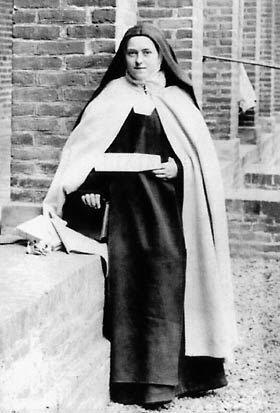
St. Therese you have said:
“Do you realize that Jesus is there in the tabernacle expressly for you – for you alone? He burns with the desire to come into your heart… don’t listen to the demon, laugh at him, and go without fear to receive the Jesus of peace and love…â€
Saint Therese, flower of Carmel,
you said you would spend your heaven
doing good upon the earth.
Your trust in God was complete.
Listen to my prayer;
bring before God my special intention…
Pray for me that I may have something of your confidence
in the loving promises of our God.
Pray that I may live my life in union with God’s plan for me,
and one day see the Face of God who you so ardently loved.
Saint Therese,
you kept your word to love God
and to trust the world to that loving providence.
Pray for us that we may be faithful to our commitment to love.
May our lives, like yours,
be able to touch the world and bring it to peace.
Amen
Tags: catholic, catholic podcast, catholic prayer, cathollc spirituality
This entry was posted on Monday, September 29th, 2014 at 2:12 pm
You can follow any responses to this entry through the RSS 2.0 feed.
Chaplet of St. Michael the Archangel text and mp3 download
Back To Home Entrance
Back To Prayer Room Lobby
[powerpress]
O God, come to my assistance. O Lord, make haste to help me. Glory be to the Father and the Son and the Holy Spirit.
Then one ‘Our Father’ and three ‘Hail Marys’ are to be prayed after each of the following nine salutations
1. By the intercession of St. Michael and the celestial Choir of Seraphim may the Lord make us worthy to burn with the fire of perfect charity. Amen.
2. By the intercession of St. Michael and the celestial Choir of Cherubim may the Lord grant us the grace to leave the ways of sin and run in the paths of Christian perfection. Amen.
3. By the intercession of St. Michael and the celestial Choir of Thrones may the Lord infuse into our hearts a true and sincere spirit of humility. Amen.
4. By the intercession of St. Michael and the celestial Choir of Dominions may the Lord give us grace to govern our senses and overcome any unruly passions. Amen.
5. By the intercession of St. Michael and the celestial Choir of Powers may the Lord protect our souls against the snares and temptations of the devil. Amen.
6. By the intercession of St. Michael and the celestial Choir of Virtues may the Lord preserve us from evil and falling into temptation. Amen.
7. By the intercession of St. Michael and the celestial Choir of Principalities may God fill our souls with a true spirit of obedience. Amen.
8. By the intercession of St. Michael and the celestial Choir of Archangels may the Lord give us perseverance in faith and in all good works in order that we may attain the glory of Heaven. Amen.
9. By the intercession of St. Michael and the celestial Choir of Angels may the Lord grant us to be protected by them in this mortal life and conducted in the life to come to Heaven. Amen.
Next, one Our Father is to be said in honour of each of the following leading Angels: St. Michael, St. Gabriel, St. Raphael and our Guardian Angel.
Concluding prayers
A Saint Michael rosary.O glorious prince St. Michael, chief and commander of the heavenly hosts, guardian of souls, vanquisher of rebel spirits, servant in the house of the Divine King and our admirable conductor, thou who dost shine with excellence and superhuman virtue deliver us from all evil, who turn to thee with confidence and enable us by your gracious protection to serve God more and more faithfully every day.
Pray for us, O glorious St. Michael, Prince of the Church of Jesus Christ, that we may be made worthy of His promises.
Almighty and Everlasting God, Who, by a prodigy of goodness and a merciful desire for the salvation of all men, has appointed the most glorious Archangel St. Michael Prince of Thy Church, make us worthy, we beseech Thee, to be delivered from all our enemies, that none of them may harass us at the hour of death, but that we may be conducted by him into the August Presence of Thy Divine Majesty. This we beg through the merits of Jesus Christ Our Lord.
Amen.
Tags: catholic, catholic podcast, catholic prayer, cathollc spirituality, Guardian Angel, intercession, michael, mp3
This entry was posted on Monday, September 29th, 2014 at 4:48 am
You can follow any responses to this entry through the RSS 2.0 feed.
[powerpress]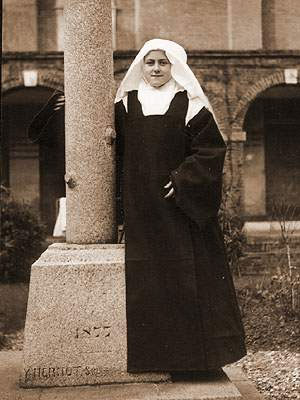
Day 6
St. Therese you have said:
“My whole strength lies in prayer and sacrifice, these are my invincible arms; they can move hearts far better than words, I know it by experience.â€
Saint Therese, flower of Carmel,
you said you would spend your heaven
doing good upon the earth.
Your trust in God was complete.
Listen to my prayer;
bring before God my special intention…
Pray for me that I may have something of your confidence
in the loving promises of our God.
Pray that I may live my life in union with God’s plan for me,
and one day see the Face of God who you so ardently loved.
Saint Therese,
you kept your word to love God
and to trust the world to that loving providence.
Pray for us that we may be faithful to our commitment to love.
May our lives, like yours,
be able to touch the world and bring it to peace.
Amen
Tags: catholic, catholic podcast, catholic prayer, cathollc spirituality
This entry was posted on Sunday, September 28th, 2014 at 3:06 am
You can follow any responses to this entry through the RSS 2.0 feed.
The Sunday, Sunday, Sunday Podcast is a reflection on the upcoming Sunday Mass readings presented by LifeTeen.com and hosted by Mark Hart.
Sunday Readings from the USCCB
Reading 1Â EZ 18:25-28
Responsorial Psalm PS 25:4-5, 8-9, 10, 14
Reading 2 Â PHIL 2:1-11
Gospel  MT 21:28-32
“What is your opinion?
A man had two sons.
He came to the first and said,
‘Son, go out and work in the vineyard today.’
He said in reply, ‘I will not, ‘
but afterwards changed his mind and went.
The man came to the other son and gave the same order.
He said in reply, ‘Yes, sir, ‘but did not go.
Which of the two did his father’s will?”
They answered, “The first.”
Jesus said to them, “Amen, I say to you,
tax collectors and prostitutes
are entering the kingdom of God before you.
When John came to you in the way of righteousness,
you did not believe him;
but tax collectors and prostitutes did.
Yet even when you saw that,
you did not later change your minds and believe him.”
Lectionary for Mass for Use in the Dioceses of the United States, second typical edition, Copyright © 2001, 1998, 1997, 1986, 1970 Confraternity of Christian Doctrine;
Tags: catholic, catholic podcast, catholic prayer, cathollc spirituality
This entry was posted on Saturday, September 27th, 2014 at 8:06 pm
You can follow any responses to this entry through the RSS 2.0 feed.
[powerpress]
Day 5
St. Therese you have said:
“I know now that true charity consists in bearing all our neighbors’ defects–not being surprised at their weakness, but edified at their smallest virtues.â€
Saint Therese, flower of Carmel,
you said you would spend your heaven
doing good upon the earth.
Your trust in God was complete.
Listen to my prayer;
bring before God my special intention…
Pray for me that I may have something of your confidence
in the loving promises of our God.
Pray that I may live my life in union with God’s plan for me,
and one day see the Face of God who you so ardently loved.
Saint Therese,
you kept your word to love God
and to trust the world to that loving providence.
Pray for us that we may be faithful to our commitment to love.
May our lives, like yours,
be able to touch the world and bring it to peace.
Amen
Tags: catholic, catholic podcast, catholic prayer, cathollc spirituality
This entry was posted on Saturday, September 27th, 2014 at 6:58 pm
You can follow any responses to this entry through the RSS 2.0 feed.
[powerpress]
Day 4
St. Therese you have said: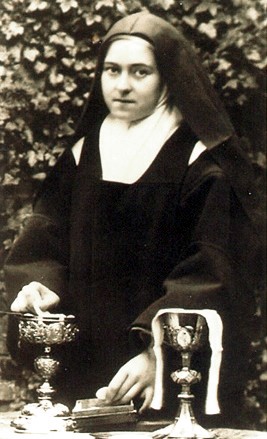
“I am convinced that one should tell one’s spiritual director if one has a great desire for communion, for our lord does not come from heaven every day to stay in a golden ciborium; he comes to find another heaven, the heaven of our soul in which he loves to dwell.â€
Saint Therese, flower of Carmel,
you said you would spend your heaven
doing good upon the earth.
Your trust in God was complete.
Listen to my prayer;
bring before God my special intention…
Pray for me that I may have something of your confidence
in the loving promises of our God.
Pray that I may live my life in union with God’s plan for me,
and one day see the Face of God who you so ardently loved.
Saint Therese,
you kept your word to love God
and to trust the world to that loving providence.
Pray for us that we may be faithful to our commitment to love.
May our lives, like yours,
be able to touch the world and bring it to peace.
Amen
Tags: catholic, catholic podcast, catholic prayer, cathollc spirituality
This entry was posted on Friday, September 26th, 2014 at 3:04 pm
You can follow any responses to this entry through the RSS 2.0 feed.
USCCA44 Â Chapter 35-Â God Calls Us To Pray – The Foundations of Prayer pt 1
[powerpress]
Archbishop Lucas offers insights on the US Catholic Catechism for Adults Chapter 35:
Descriptions of prayer are abundant throughout Christian history. “True prayer,†wrote St. Augustine, “is nothing but love.†Prayer should arise from the heart. “Prayer,†said St. John Vianney, “is the inner bath of love into which the soul plunges itself.†“Everyone of us needs half an hour of prayer each day,†remarked St. Francis de Sales, “except when we are busy—then we need an hour.†Definitions of prayer are important, but insufficient. There is a huge difference between knowing about prayer and praying. On this issue, the Rule of St. Benedict is clear: “If a man wants to pray, let him go and pray.â€
St. John Damascene gave a classic definition of prayer: “Prayer is the raising of one’s mind and heart to God or the requesting of good things from God†(CCC, no. 2559, citing St. John Damascene, De Fide Orth. 3, 24).
The Catechism clearly defines prayer as a “vital and personal relationship with the living and true God†(CCC, no. 2558). Prayer is Christian “insofar as it is communion with Christ†(CCC, no. 2565), and a “covenant relationship between God and man in Christ†(CCC, no. 2564).
United States Conference of Catholic Bishops (USCCB) (2012-04-02). United States Catholic Catechism for Adults (Kindle Locations 6658-6667). United States Conference of Catholic Bishops (USCCB). Kindle Edition.
The Most Reverend George J. Lucas leads the Archdiocese of Omaha.Â
For other episodes in the visit our Archbishop George Lucas page
This programs is based on:
More information can be found here.
We wish to thank the USCCB for the permissions granted for use of  relevant material used in this series.
Tags: catholic, catholic podcast, catholic prayer, cathollc spirituality
This entry was posted on Thursday, September 25th, 2014 at 2:44 pm
You can follow any responses to this entry through the RSS 2.0 feed.
Dr. Matthew Bunson discusses the life, times and teachings of St. Hildegard von Bingen
Born: September 16, 1098, Bermersheim vor der Höhe, Germany
Died: September 17, 1179, Bingen am Rhein, Germany
Film music credits: Vision – From the Life of Hildegard von Bingen
From Vatican.va, an excerpt from the teachings of Pope Benedict XVIÂ
APOSTOLIC LETTER
Proclaiming Saint Hildegard of Bingen,
professed nun of the Order of Saint Benedict,
a Doctor of the Universal Church
5. Hildegard’s anthropology begins from the biblical narrative of the creation of man (Gen 1:26), made in the image and likeness of God. Man, according to Hildegard’s biblically inspired cosmology, contains all the elements of the world because the entire universe is recapitulated in him; he is formed from the very matter of creation. The human person can therefore consciously enter into a relationship with God. This does not happen through a direct vision, but, in the words of Saint Paul, as “in a mirror†(1 Cor 13:12). The divine image in man consists in his rationality, structured as intellect and will. Thanks to his intellect, man can distinguish between good and evil; thanks to his will, he is spurred to action.
Human beings are seen as a unity of body and soul. The German mystic shows a positive appreciation of corporeity and providential value is given even to the body’s weaknesses. The body is not a weight from which to be delivered. Although human beings are weak and frail, this “teaches†them a sense of creatureliness and humility, protecting them from pride and arrogance. Hildegard contemplated in a vision the souls of the blessed in paradise waiting to be rejoined to their bodies. Our bodies, like the body of Christ, are oriented to the glorious resurrection, to the supreme transformation for eternal life. The very vision of God, in which eternal life consists, cannot be definitively achieved without the body.
The human being exists in both the male and female form. Hildegard recognized that a relationship of reciprocity and a
substantial equality between man and woman is rooted in this ontological structure of the human condition. Nevertheless the mystery of sin also dwells in humanity, and was manifested in history for the first time precisely in the relationship between Adam and Eve. Unlike other medieval authors who saw Eve’s weakness as the cause of the Fall, Hildegard places it above all in Adam’s immoderate passion for her.
Even in their condition as sinners, men and women continue to be the recipients of God’s love, because God’s love is unconditional and, after the Fall, acquires the face of mercy. Even the punishment that God inflicts on the man and woman brings out the merciful love of the Creator. In this regard, the most precise description of the human creature is that of someone on a journey, homo viator. On this pilgrimage towards the homeland, the human person is called to a struggle in order constantly to choose what is good and avoid evil.
The constant choice of good produces a virtuous life. The Son of God made man is the subject of all virtues, therefore the imitation of Christ consists precisely in living a virtuous life in communion with Christ. The power of virtue derives from the Holy Spirit, poured into the hearts of believers, who brings about upright behaviour. This is the purpose of human existence. In this way man experiences his Christ-like perfection.
6. So as to achieve this goal, the Lord has given his Church the sacraments. Salvation and the perfection of the human being are not achieved through the effort of the will alone, but rather through the gifts of grace that God grants in the Church.
The Church herself is the first sacrament that God places in the world so that she may communicate salvation to mankind. The Church, built up from “living soulsâ€, may rightly be considered virgin, bride and mother, and thus resembles closely the historical and mystical figure of the Mother of God. The Church communicates salvation first of all by keeping and proclaiming the two great mysteries of the Trinity and the Incarnation, which are like the two “primary sacramentsâ€; and then through administration of the other sacraments. The summit of the sacramental nature of the Church is the Eucharist. The sacraments produce the sanctification of believers, salvation and purification from sin, redemption and charity and all the other virtues. However, to repeat, the Church lives because God within her has manifested his intraTrinitarian love, which was revealed in Christ. The Lord Jesus is the mediator par excellence. From the Trinitarian womb he comes to encounter man and from Mary’s womb he encounters God. As the Son of God, he is love incarnate; as the Son of Mary, he is humanity’s representative before the throne of God.
The human person can have an experience of God. Relationship with him, in fact, is not lived solely in the sphere of rationality, but involves the person totally. All the external and internal senses of the human being are involved in the experience of God. “But man was created in the image and likeness of God, so that he might act through the five bodily senses; he is not divided by them, rather through them he is wise, knowledgeable and intelligent in doing his work (…). For this very reason, because man is wise, knowledgeable and intelligent, he knows creation; he knows God — whom he cannot see except by faith — through creation and his great works, even if with his five senses he barely comprehends them†(Explanatio Symboli Sancti Athanasii in PL 197, 1073). This experiential process finds once again, its fullness in participation in the sacraments.
Hildegard also saw contradictions in the lives of individual members of the faithful and reported the most deplorable situations. She emphasized in particular that individualism in doctrine and in practice on the part of both lay people and ordained ministers is an expression of pride and constitutes the main obstacle to the Church’s evangelizing mission to non-Christians.
One of the salient points of Hildegard’s magisterium was her heartfelt exhortation to a virtuous life addressed to consecrated men and women. Her understanding of the consecrated life is a true “theological metaphysicsâ€, because it is firmly rooted in the theological virtue of faith, which is the source and constant impulse to full commitment in obedience, poverty and chastity. In living out the evangelical counsels, the consecrated person shares in the experience of Christ, poor, chaste and obedient, and follows in his footsteps in daily life. This is fundamental in the consecrated life.
7. Hildegard’s eminent doctrine echoes the teaching of the Apostles, the Fathers and writings of her own day, while it finds a constant point of reference in the Rule of Saint Benedict. The monastic liturgy and the interiorization of sacred Scripture are central to her thought which, focusing on the mystery of the Incarnation, is expressed in a profound unity of style and inner content that runs through all her writings.
The teaching of the holy Benedictine nun stands as a beacon for homo viator. Her message appears extraordinarily timely in today’s world, which is especially sensitive to the values that she proposed and lived. For example, we think of Hildegard’s charismatic and speculative capacity, which offers a lively incentive to theological research; her reflection on the mystery of Christ, considered in its beauty; the dialogue of the Church and theology with culture, science and contemporary art; the ideal of the consecrated life as a possibility for human fulfilment; her appreciation of the liturgy as a celebration of life; her understanding of the reform of the Church, not as an empty change of structure but as conversion of heart; her sensitivity to nature, whose laws are to be safeguarded and not violated.
For these reasons the attribution of the title of Doctor of the Universal Church to Hildegard of Bingen has great significance for today’s world and an extraordinary importance for women. In Hildegard are expressed the most noble values of womanhood: hence the presence of women in the Church and in society is also illumined by her presence, both from the perspective of scientific research and that of pastoral activity. Her ability to speak to those who were far from the faith and from the Church make Hildegard a credible witness of the new evangelization.
By virtue of her reputation for holiness and her eminent teaching, on 6 March 1979 Cardinal Joseph Höffner, Archbishop of Cologne and President of the German Bishops’ Conference, together with the Cardinals, Archbishops and Bishops of the same Conference, including myself as Cardinal Archbishop of Munich and Freising, submitted to Blessed John Paul II the request that Hildegard of Bingen be declared a Doctor of the Universal Church. In that petition, the Cardinal emphasized the soundness of Hildegard’s doctrine, recognized in the twelfth century by Pope Eugene III, her holiness, widely known and celebrated by the people, and the authority of her writings. As time passed, other petitions were added to that of the German Bishops’ Conference, first and foremost the petition from the nuns of Eibingen Monastery, which bears her name. Thus, to the common wish of the People of God that Hildegard be officially canonized, was added the request that she be declared a “Doctor of the Universal Churchâ€.
With my consent, therefore, the Congregation for the Causes of Saints diligently prepared a Positio super Canonizatione et Concessione tituli Doctoris Ecclesiae Universalis for the Mystic of Bingen. Since this concerned a famous teacher of theology who had been the subject of many authoritative studies, I granted the dispensation from the measures prescribed by article 73 of the Apostolic Constitution Pastor Bonus. The cause was therefore examined and approved by the Cardinals and Bishops, who met in Plenary Session on 20 March 2012. The proponent (ponens) of the cause was His Eminence Cardinal Angelo Amato, Prefect of the Congregation for the Causes of Saints. At the audience of 10 May 2012, Cardinal Amato informed us in detail about the status quaestionis and the unanimous vote of the Fathers at the above-mentioned Plenary Session of the Congregation for the Causes of Saints. On 27 May 2012, Pentecost Sunday, I had the joy of announcing to the crowd of pilgrims from all over the world gathered in Saint Peter’s Square the news of the conferral of the title of Doctor of the Universal Church upon Saint Hildegard of Bingen and Saint John of Avila at the beginning of the Assembly of the Synod of Bishops and on the eve of the Year of Faith.
Today, with the help of God and the approval of the whole Church, this act has taken place. In Saint Peter’s Square, in the presence of many Cardinals and Prelates of the Roman Curia and of the Catholic Church, in confirming the acts of the process and willingly granting the desires of the petitioners, I spoke the following words in the course of the Eucharistic sacrifice: “Fulfilling the wishes of numerous brethren in the episcopate, and of many of the faithful throughout the world, after due consultation with the Congregation for the Causes of Saints, with certain knowledge and after mature deliberation, with the fullness of my apostolic authority I declare Saint John of Avila, diocesan priest, and Saint Hildegard of Bingen, professed nun of the Order of Saint Benedict, to be Doctors of the Universal Church. In the name of the Father, and of the Son, and of the Holy Spirit.
For more visit Vatican.va
For more from Dr. Matthew Bunson check out his Discerning Hearts page
Dr. Matthew Bunson, Senior Fellow of the St. Paul Center for Biblical Theology, is one of the United States’ leading authorities on the papacy and the Church.
His books include: The Encyclopedia of Catholic History; The Encyclopedia of Saints; Papal Wisdom; All Shall Be Well; Encyclopedia of the Roman Empire; and The Angelic Doctor: The Life and World of St. Thomas Aquinas; The Pope Encyclopedia; We Have a Pope! Benedict XVI, the first Catholic biography of the Holy Father in the English language; the Encyclopedia of U.S. Catholic History; Pope Francis. His also the editor of OSV’s “The Catholic Answer” magazine.
Tags: catholic, catholic podcast, catholic prayer, cathollc spirituality
This entry was posted on Thursday, September 25th, 2014 at 2:26 pm
You can follow any responses to this entry through the RSS 2.0 feed.
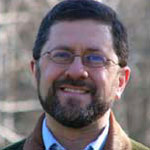 Episode 8– The Conversion of the New World
Episode 8– The Conversion of the New World
The Resilient Church with Mike Aquilina, offers a fascinating look at the trials and triumphs of the Catholic Church over the past two thousand years. Fast-paced sketches of critical periods in church history give readers perspective on the challenges faced by the church today. Mike Aquilina does not shrink from the realities of the past, including badly behaved leaders and those who betrayed the Lord. Yet he also leaves us all with well-founded hope for the future: God remains faithful in every circumstance and fulfills his promise to remain with his church always. Hosted by Kris McGregor
Also visit Mike’s “Discerning Hearts†page for more audio downloads and information!
Tags: catholic, catholic podcast, catholic prayer, cathollc spirituality
This entry was posted on Thursday, September 25th, 2014 at 2:08 pm
You can follow any responses to this entry through the RSS 2.0 feed.
[powerpress]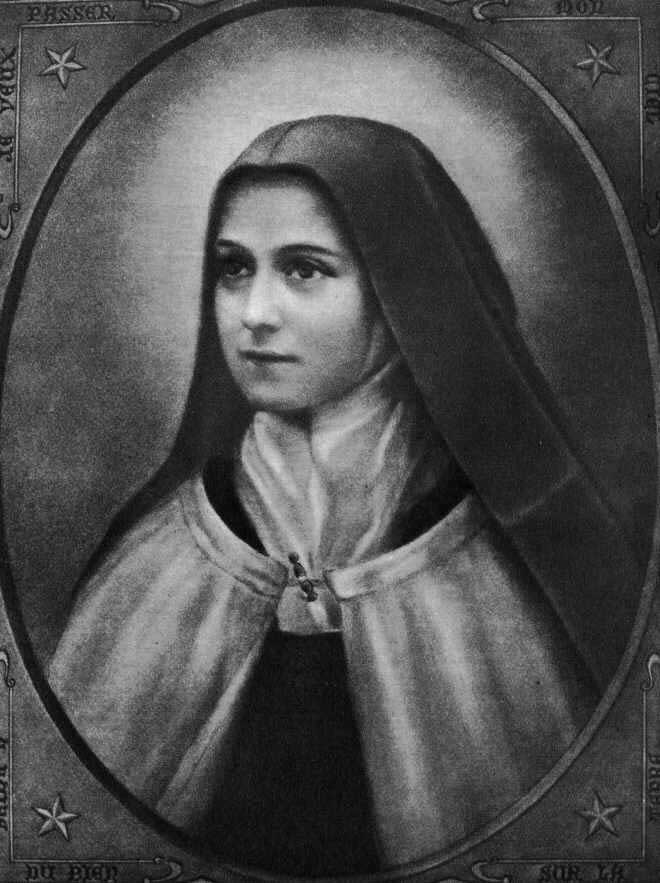
Day 3
St. Therese you have said:
“Miss no single opportunity of making some small sacrifice, here by a smiling look, there by a kindly word; always doing the smallest right and doing it all for love.â€
Saint Therese, flower of Carmel,
you said you would spend your heaven
doing good upon the earth.
Your trust in God was complete.
Listen to my prayer;
bring before God my special intention…
Pray for me that I may have something of your confidence
in the loving promises of our God.
Pray that I may live my life in union with God’s plan for me,
and one day see the Face of God who you so ardently loved.
Saint Therese,
you kept your word to love God
and to trust the world to that loving providence.
Pray for us that we may be faithful to our commitment to love.
May our lives, like yours,
be able to touch the world and bring it to peace.
Amen
Tags: catholic, catholic podcast, catholic prayer, cathollc spirituality
This entry was posted on Thursday, September 25th, 2014 at 12:07 am
You can follow any responses to this entry through the RSS 2.0 feed.

